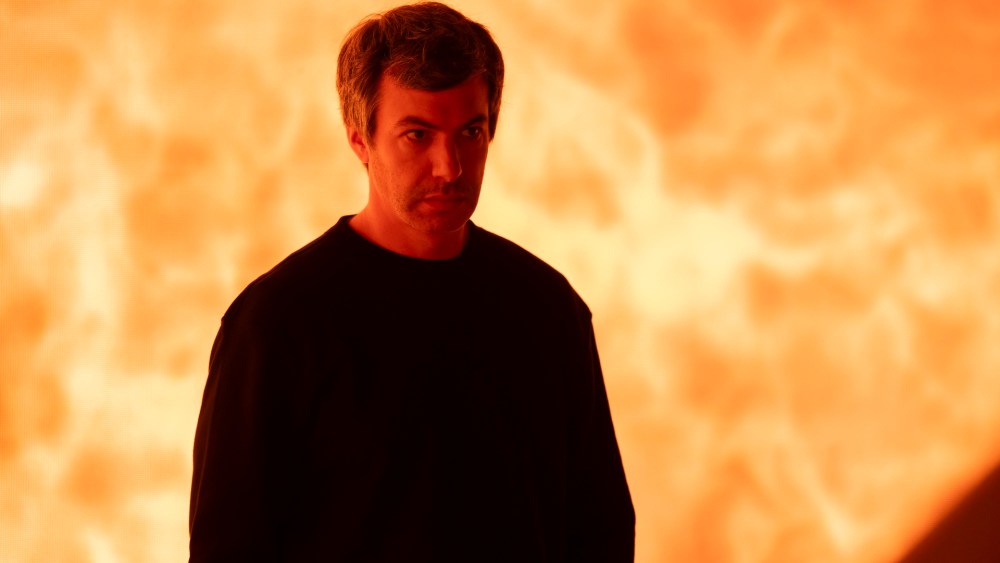The inaugural season of Nathan Fielder’s “The Rehearsal” serves as a thorough critique of its underlying concept. In the first episode of the HBO series, the Canadian comedian introduced his main idea—that carefully simulating real-life situations would better equip individuals for reality—by effectively orchestrating a trivia night in Brooklyn. This triumph, however, was to be Fielder’s final success. Over time, the structure began to disintegrate, impacting both his volunteer participants and ultimately himself. Faced with the emotional pain of a child actor mistaking him for his real father, Fielder’s character was compelled to concede that occasionally “life’s better with surprises.”
The tidy unraveling of this journey and the completeness of Fielder’s commentary on the futility of control made the anticipation for Season 2 almost as disconcerting as the actual viewing experience of his work. Having recommitted to the rehearsal concept in spite of its established flaws, viewers were left questioning which boundaries Fielder’s on-screen persona might push. How deep into psychological territory would he venture? Moreover, how would the real Nathan, in secret collaboration with a team that includes writers Carrie Kemper, Eric Notarnicola, and Adam Locke-Norton, weave a narrative that had already reached a conclusive climax?
Almost three years later, Season 2 of “The Rehearsal” is set to premiere on April 20. In the opening episode, Fielder refrains from any grand reintroduction. There’s no summary of the previous season’s events or explicit rationale provided for why the rehearsal method remains relevant—only relics like the fake bar where the trivia night was held, now preserved on an L.A. soundstage, and a disquieting mention of a new policy prohibiting rehearsals with children. Instead, Fielder plunges directly into the application of his model, embarking on a new endeavor: enhancing communication between airline pilots to prevent plane crashes.
Fielder does not explain his sudden interest in aviation, leaving some to speculate that his fascination stems from current events given the frequency of airline accidents reported in the media. However, as the metaphor unfolds, it becomes evident that, as the star, director, producer, and co-writer of “The Rehearsal,” as well as Comedy Central’s “Nathan for You,” Fielder is essentially the captain of his own ship. This suggests that his insights into pilots’ interpersonal dynamics—where catastrophes often arise from pilots’ hesitation to voice concerns—are, naturally, a reflection of his own struggles as a socially awkward outsider.
Diagnosis emerges as a prominent theme in Season 2, layered over Fielder’s ongoing explorations of social performance, isolation, and the ambiguous boundary between authenticity and fabrication. While thematically it revisits familiar concepts, it does not quite recapture the compelling finality of Season 1—arguably one of the finest achievements in television narrative this decade. However, Season 2 elevates Fielder’s explorations among literal new heights, ranging from the nation’s power centers to surreal simulations and international settings. He and his team are intent on outdoing themselves, even as the integration between filmmaking prowess and psychological insight feels less organic.
The Fielder of Season 2 has seamlessly woven rehearsal into his everyday life. It is done so subtly that it often goes unnoticed; for instance, when Fielder contacts United Airlines’ public relations, the representative appears suspicious until the audience realizes she’s an actress scripted to help prepare him. With this foundation, Fielder begins to experiment with the parameters of his renowned technique—such as exploring if animals can rehearse or if it’s feasible to run multiple variations of the same experiment like a scientist managing variables—ultimately aiming to discover new possibilities, including whether a “pack” of lookalikes can alleviate anxiety in subjects.
Fielder also begins to leverage audience reception and feedback since the first season’s debut. A meta aspect has always been intrinsic to a character named Nathan Fielder, portrayed by the actual Nathan, who casts real participants under often misleading circumstances. In Season 2, this technique escalates, producing mixed reactions. When Fielder—playing the role of a safety spokesperson—expresses frustration about comedians struggling to be taken seriously, it occurs on an HBO platform that regularly invites critical essays from prestigious sources. This irony adds complexity to his musings on credibility. Moreover, his reflections on actors being able to convincingly portray emotions he himself struggles to express are interrupted by clips from his work in Showtime’s “The Curse,” which serves as a reminder that Fielder possesses considerable acting talent.
Additionally, Fielder engages with viewer interpretations that mirror the aloofness and assumptions he often has toward pilots. As audiences observe elements of their own anxieties reflected in Fielder’s character—his discomfort and social awkwardness—he starts to contemplate whether they might perceive insights he has overlooked. This inquiry becomes central to the season, culminating in Fielder’s final voiceover, which resonates the sentiment of revealing thoughts only to face changed perceptions from others. While Season 2 remains anchored in extreme personalities willing to expose their eccentricities on screen, it ultimately continues to chart Fielder’s own journey, represented through tasks like asking pilots to judge a singing contest that echoes his firsthand entertainment experiences. Thus, the narrative of Season 2 feels somewhat supplementary, akin to a transport-themed spinoff, as the character has already arrived at a pivotal moment, with the dynamics of cruising altitude being less eventful than the thrill of takeoff or landing.
Season 2 of “The Rehearsal” premieres at 10:30 PM ET on Sunday, April 20 on HBO, with subsequent episodes airing weekly on Sundays.



